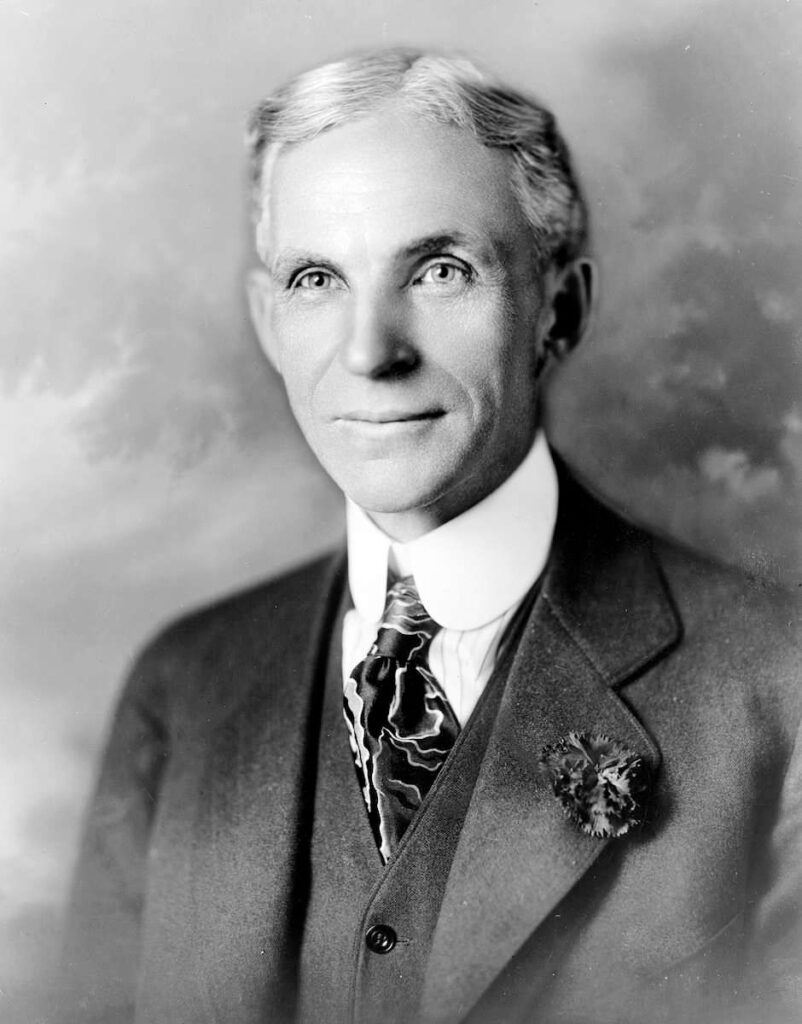
The twenties are a fascinating, often tumultuous, decade of discovery and decision-making. It’s a period ripe with potential, where we navigate the transition from youthful idealism to the demanding realities of the professional world. While mistakes are inevitable and often valuable learning experiences, “the best part about your 20s is that you can recover quickly from the inevitable mistakes you’ll make as you figure out how to make it in the real world.” However, some poor choices can have lasting effects, making it crucial to cultivate habits that propel us forward.
Many aspiring entrepreneurs and driven professionals look to the habits of highly successful individuals for inspiration. We often focus on what they *do* – their routines, their strategies, their bold moves. Yet, just as significant, and perhaps even more foundational, are the habits and mindsets they *stopped* doing or consciously *avoided* as they matured through their twenties. This article will delve into 14 such pivotal shifts, offering concrete strategies and insights that readers can apply to their lives.
What separates the most successful people from the rest isn’t just what they do—it’s what they no longer waste time or energy on. They intentionally cut behaviors that hold them back. Letting go of what no longer serves them is just as powerful as chasing new goals. By understanding these critical deletions, we can gain invaluable perspective on building a robust foundation for enduring success and personal growth. Let’s explore the initial seven habits.

1. **Thinking Education and Talent Are Enough**It’s easy to believe that a strong academic background or inherent abilities are sufficient for success. High intelligence, natural talent, and elite degrees are good to have, but “they do not guarantee that you will land a great job — and they mean nothing when not paired with hard work.” The real world demands consistent, diligent effort beyond innate gifts or impressive credentials.
Sylvie di Giusto, founder of Executive Image Consulting, recounts her twenties in corporate environments, characterized by “working nights and weekends.” She emphasizes, “Sweat, hassle, pain, as well as diligence, perseverance, and an enormous amount of effort and energy characterize my career at this point.” This underscores a critical truth: there are very few shortcuts to career success.
The notion that “Success doesn’t ‘just happen.’ Never,” from Ms. di Giusto, is a powerful reminder. Successful individuals understand that talent provides a starting point, but consistent hard work transforms potential into achievement. Relying solely on what they naturally possess limits growth and trajectory.
Highly successful people realize that continuous application of effort is the bedrock of accomplishment. They don’t rest on past laurels or assume their talent will carry them. Instead, they embrace the grind, understanding that sustained commitment and perseverance are the true differentiators. This proactive approach ensures they are always building, striving, and never complacent.
Read more about: Shaquille O’Neal’s Extra-Large, Custom-Built Legacy: A Fleet of Legendary Achievements

2. **Neglecting Their Health**The vibrant energy of youth can often lead to a misguided sense of invincibility concerning one’s health. In your twenties, it might seem possible to burn the candle at both ends without consequence. However, as the body ages, this illusion quickly fades. “Your hangovers will be so bad at 28 that the idea of staying out drinking all night will be hilarious to you,” Meggie Sutherland Cutter shares, illustrating this reality.
More significantly, behaviors like excessive drinking, smoking, and an unhealthy diet transition from acceptable youthful indulgences to genuinely dangerous habits. Successful individuals recognize this shift and prioritize physical well-being as a fundamental pillar of sustained performance. Peak mental and professional output is intrinsically linked to a healthy body.
Beyond physical health, successful people also pay keen attention to their mental well-being. Communications professor Michael Weston highlights that “20-somethings also need to pay attention to their mental health, since any potential issues usually arise in your 20s.” Proactive management of mental health, including stress and anxiety, becomes a non-negotiable part of their self-care regimen.
Top achievers know that well-being fuels success; they no longer sacrifice self-care for productivity. Leaders like Arianna Huffington have championed the importance of sleep, exercise, and mindfulness. Many high performers schedule downtime and regular workouts, understanding that mental clarity and energy are essential for creativity and resilience. Prioritizing health ensures they avoid burnout and maintain peak performance.
Read more about: The Definitive Look at MC Hammer’s Financial Downfall: 12 Mistakes That Led a Music Icon to Bankruptcy

3. **Spending All Disposable Income / Neglecting Financial Discipline**The allure of immediate gratification can be particularly strong in one’s twenties, often leading to spending all available income. Yet, this habit can have profound and lasting negative effects on future financial security. A stark statistic from a 2014 Bankrate survey revealed that “69% of those ages 18 to 29 had no retirement savings,” highlighting a widespread oversight that highly successful people consciously avoid.
While retirement might seem distant, failing to recognize the importance of saving as soon as possible is a major disservice to your future self. Successful individuals grasp the power of compound interest and the security that early financial planning provides. Small, consistent contributions made in their twenties can blossom into substantial wealth over decades.
Entrepreneur Aditya Rathnam advises that there’s no need to invest too much initially, but it’s “essential to take advantage of your company’s 401(k) matching program, if one is available, and/or open a Roth IRA account.” These foundational steps, even modest, lay the groundwork for robust financial health. The habit isn’t about becoming an overnight millionaire, but about establishing a disciplined approach.
The world’s most successful people have abandoned financial recklessness in favor of smart money management. They prioritize budgeting, saving, and strategic investing, understanding that wealth is built over time. Icons like Warren Buffett prove that steady, thoughtful financial decisions lead to lasting prosperity. By making wise choices and avoiding impulsive spending, top performers ensure their resources work for them, securing their future and providing a stable platform for their ambitions.
Read more about: Smart Borrowing: 12 Common Mistakes to Avoid When Using a Home Equity Line of Credit (HELOC)
4. **Equating Happiness Solely with Money / Defining Success with Money**A common misconception, particularly for those striving for achievement, is the belief that prestige and a fat paycheck are the ultimate determinants of happiness and success. While financial security can open doors and relieve stress, successful individuals realize there’s far more to a fulfilling life than monetary gain. As Joe Choi articulates, “Prestige and a fat paycheck can make you happier, but there’s plenty more to success than that.”
Pursuing a career path solely for the paycheck, rather than aligning it with one’s passion, sets individuals up for years of potential regret. The most successful people understand that true happiness and enduring satisfaction stem from purpose, contribution, and inner peace. Money, in their view, is a tool that can facilitate these deeper values, but it is not the end goal itself.
Most successful people define their success with happiness, inner peace, and positive contributions – more than money. Financial security can open opportunities and relieve stress. However, successful people realize that all the money in the world cannot make you happy if you are unable to feel happiness from within. This profound realization shifts their focus from external rewards to internal fulfillment.
This redefinition of success empowers them to make career and life choices that resonate with their core values, leading to a more engaged and meaningful existence. They understand that while financial stability is important, it’s the pursuit of meaningful work and personal contentment that truly enriches their lives, building a life of purpose rather than one dictated purely by economic metrics.

5. **Giving Up When Things Get Tough / Dwelling on Past Failures**Life inevitably presents challenges, and for those in their twenties, experiences like ending a serious relationship, getting fired, or seeing a startup fail can feel devastating for the first time. The natural inclination might be to give up or lower aspirations. However, highly successful people cultivate a very different response, viewing failures not as endpoints, but as crucial opportunities for growth.
Instead of replaying mistakes or allowing past setbacks to define their present or future, these individuals analyze what went wrong, extract valuable lessons, and then resolutely move forward with newfound clarity. Vogue editor Anna Wintour’s perspective on being fired in the mid-1970s exemplifies this, as she considered it “one of the most important moments in her career.” This mindset transforms failures into stepping stones.
Quora user Carolyn Cho echoes this, stating, “Getting fired and waking up the next day as usual made me realize that failure isn’t the end of the world.” She also noted that “Getting dumped taught me the difference between a good and a bad relationship.” Such experiences, while painful, become powerful teachers.
Successful people accept that failure is an essential part of growth. They look at these bumps as opportunities to learn, grow, and become even better for an even bigger win ahead! They know that no matter how many times you’re knocked down, as long as you get right back up and use your new strength and knowledge to improve, you haven’t really failed. By channeling energy into future improvements, top achievers maintain momentum and confidence, essential for navigating the road to success.

6. **Letting Others Define Them / Concerning Themselves With How Others Judge Them**When embarking on a career and uncertain about future direction, it can be tempting to allow the opinions and expectations of others to dictate one’s path. However, successful individuals understand the profound importance of self-perception and personal autonomy. They consciously reject the habit of letting external judgments shape their identity or choices, recognizing that authentic success stems from an inner compass.
“Shark Tank” investor Lori Greiner powerfully advises entrepreneurs to “never let others’ opinions influence them on a personal level.” She adds a crucial insight: “Your success will have everything to do with how you perceive yourself, because how you perceive yourself is how others will perceive you, too.” This highlights the self-fulfilling prophecy inherent in internalizing external opinions.
Successful people do not base their worth on how others think of them because they’ve set their own values, goals, and principles without having to depend on anyone to validate them. They understand that everyone views the world through their own life experience. Therefore, “when someone makes a judgement about you or your life, it doesn’t make it a reality unless you agree with it.”
This liberation from the need for external validation allows them to pursue unique ideas, take unconventional paths, and remain resilient in the face of criticism. By fostering a strong sense of self and an unwavering belief in their own worth, highly successful people carve out trajectories genuinely aligned with their aspirations, free from limitations imposed by others’ perceptions.

7. **Letting Impatience Cripple Them / Waiting for Perfect Timing**The desire to achieve goals rapidly can often lead to impatience, especially in one’s twenties. There’s a societal pressure, real or imagined, to have a fully formed career, a settled personal life, or significant achievements by a certain age. However, successful individuals learn to temper this impatience, understanding that true progress often requires patience, focus, and a willingness to embrace the present.
Matisia Consultants founder and CEO Kristina Roth recalls feeling compelled to achieve all her goals as soon as possible, an “anxiety-inducing mindset that was counterproductive.” She learned the “concept of delayed gratification” and the importance of paying “attention to important decision points in the tree of life, which will change your life one way or the other.” This shift in perspective is crucial for long-term success.
In conjunction with letting go of impatience, successful people also stop waiting for the “perfect timing” before making a move. They recognize that ideal conditions are rare, and indecision can lead to missed opportunities. By choosing to act boldly—often in the face of uncertainty—they create momentum and open the door to unexpected breakthroughs. Entrepreneurs like Sara Blakely built empires by launching before everything was perfectly aligned, proving that decisive action is far more valuable than endless preparation.
This dual mastery—combining strategic patience with a readiness to act—is a hallmark of high achievers. They understand that some goals require a steady, deliberate approach, while others demand a leap of faith. By not letting impatience rush them into poor decisions, nor letting the quest for perfection paralyze them, they effectively navigate their journey, creating opportunities rather than waiting for them to materialize. This balanced perspective fosters resilience and ensures sustained progress.
Beyond these foundational shifts, successful individuals continue to refine their approach to life and work, consciously shedding behaviors that can derail progress. They cultivate advanced strategies for success, actively avoiding career-stalling tendencies, nurturing healthier relationships, and consistently pushing beyond their comfort zones for continuous personal and professional growth. This next set of habits underscores a profound understanding: true achievement isn’t just about addition, but about the strategic removal of what no longer serves your highest aspirations. By intentionally letting go of these next seven behaviors, you can unlock greater clarity, focus, and resilience on your path to enduring success.

8. **Don’t Try to Please Everyone**In the early stages of a career, it’s a natural inclination to want to be liked by everyone – your boss, clients, and colleagues. There’s an underlying belief that universal approval somehow translates to career security or faster advancement. However, successful individuals quickly learn that this quest for widespread approval can be a significant drain on their energy and an impediment to authentic leadership. They recognize that trying to satisfy every single person often leads to compromised decisions and a diluted sense of self.
Entrepreneurial journeys, in particular, demand conviction and a clear vision. Diluting one’s stance or constantly seeking validation from every corner can prevent bold initiatives from taking flight. The most effective leaders understand that not every decision will be popular, and not every person will agree with their direction. Their focus shifts from being universally liked to being respected for their integrity and the value they bring.
As Quora user Carolyn Cho sagely notes, “Inevitably, someone will always dislike you. I wish I had figured this out a lot earlier and stopped trying so hard and worrying so much about it.” This realization liberates highly successful people from the burden of constant external validation. They understand that their worth and the efficacy of their work are not measured by a popularity contest, but by the impact they create and the goals they achieve.
By releasing the need to please everyone, top performers gain the freedom to prioritize their vision, set clear boundaries, and make decisions that truly align with their long-term objectives. They invest their energy in fostering genuine, productive relationships built on mutual respect, rather than attempting to win over every detractor. This focus on authenticity and impact over universal appeal is a hallmark of those who build lasting success and influence.
Read more about: From Riches to Ruin: The Shocking Stories of 10 Celebrities Who Lost It All and Couldn’t Recover

9. **Don’t Think All Friendships Can Last Forever**Transitioning out of your twenties often involves a significant realignment of social circles and priorities. The close-knit bonds forged during college, characterized by shared living spaces and constant proximity, naturally evolve as individuals move into diverse professional fields, geographical locations, and life stages. It’s a common misconception among 20-somethings that these early friendships will automatically endure the test of time and distance without conscious effort or occasional re-evaluation.
Highly successful individuals come to understand that not all friendships are destined to last a lifetime, nor should they. Meggie Sutherland Cutter articulates this sentiment: “Your college pals that you think will be your best pals for life? Some will still be there at 40; most will be living their lives doing their thing.” This isn’t a cynical view, but rather a pragmatic acceptance of how life unfolds and how personal growth can sometimes lead people in different directions.
This realization prompts successful people to become more intentional about the relationships they cultivate and maintain. They learn to identify which connections are truly enriching and supportive, and which might be weighing them down or simply fading naturally. Rather than clinging to every past connection out of a sense of obligation, they prioritize investing time and emotional energy into those relationships that truly uplift, inspire, and align with their evolving values and goals.
By consciously curating their social networks, these achievers ensure they are surrounded by individuals who contribute positively to their journey. This discernment allows them to free up valuable mental and emotional space, channeling it towards deep, meaningful connections that foster personal growth, collaboration, and mutual encouragement. It’s about quality over quantity, building a robust support system of true allies who understand and champion their aspirations.
Read more about: Beyond the Red Carpet: Nicole Kidman’s Unfiltered Confessions on Life, Love, and Reinvention After Her Split from Keith Urban

10. **Don’t Create Bubbles Around Themselves**It’s tempting, especially when immersed in a specific career or industry, to confine interactions to people within that particular world. Building relationships with colleagues and peers is undoubtedly important for career advancement and collaboration. However, highly successful individuals consciously avoid the pitfall of creating insular bubbles, recognizing that such confinement can lead to a narrow, “myopic perspective” that stifles innovation and limits growth.
Successful people understand that true breakthroughs often occur at the intersection of diverse ideas and experiences. They actively make an effort to “branch out,” seeking connections with individuals from different fields, backgrounds, and perspectives. This intentional diversification of their network provides fresh insights, challenges preconceived notions, and exposes them to alternative ways of thinking that might otherwise remain unseen.
Jon Levy, founder of the Influencers network, profoundly emphasizes this: “The people you surround yourself with have a direct impact on your success and failure. They will affect everything from how much you exercise and what clothing you wear to how much you earn and what values you deem important. So if you want to live a life full of joy and accomplishment, you need to become masterful at building relationships with good people you respect, and letting go of relationships that have a negative impact.” This highlights the immense power of a consciously cultivated network.
By actively stepping outside their immediate professional and social comfort zones, top achievers broaden their understanding of the world, fostering adaptability and creativity. They build robust networks that not only offer diverse knowledge but also provide a powerful support system, enabling them to navigate complex challenges and seize unforeseen opportunities. This habit of continuous expansion ensures they remain agile, innovative, and deeply connected to the pulse of a rapidly changing global landscape.
Read more about: 12 Mind-Blowing Facts About Stars That Will Make You Look Up (Literally!)

11. **Don’t Try Planning Years in Advance**The pressure to have a meticulously detailed five-year, or even ten-year, career plan firmly in place by the end of one’s twenties is a common source of anxiety. Societal expectations often imply that a fully charted course is a prerequisite for success. However, highly successful individuals learn to let go of this rigid, long-term planning, understanding that an overly prescriptive future can stifle agility and lead to unnecessary stress.
They recognize the inherent unpredictability of life and career paths. As Joe Choi insightfully states, “It’s hard to predict where you’ll end up and what you’ll be doing.” Instead of driving themselves “crazy with five-year plans,” top achievers learn to embrace a more flexible, adaptive approach. Their focus shifts from meticulously mapping out distant milestones to concentrating on “immediate goals” that are actionable and within their current sphere of influence.
This doesn’t mean a lack of vision; rather, it’s about breaking down grand aspirations into manageable, short-term objectives. By mastering the present and focusing on incremental progress, successful individuals create momentum that propels them forward. They understand that by consistently achieving small, immediate goals, they are inherently building towards a larger, often more dynamic, future than any static plan could account for.
This habit of focusing on present actions and maintaining adaptability allows them to pivot quickly in response to new opportunities or unforeseen challenges. They become adept at iterating, learning, and adjusting their course as they gain more experience and information. This dynamic approach to planning fosters resilience and ensures that their journey is one of continuous evolution, creating success through agile execution rather than rigid adherence to a potentially obsolete blueprint.
Read more about: Unlock the Universe: Your Ultimate Guide to DSLR Astrophotography – From First Snap to Stellar Masterpiece!

12. **Don’t Ignore Feedback**For anyone on the path to high achievement, the ability to receive and act upon feedback is not merely a soft skill, but a critical driver of progress. Many individuals, especially in their younger years, may find criticism difficult to stomach, often dismissing it as personal attack or misunderstanding. However, successful individuals consciously shed this defensive posture, recognizing that ignoring constructive criticism is a direct pathway to stagnation.
Instead of shying away, top achievers actively seek out feedback, viewing it as an invaluable resource for growth and refinement. They understand that an external perspective can illuminate blind spots and highlight areas for improvement that are often invisible from an internal vantage point. Leaders like Indra Nooyi have credited their progress to “listening to a wide range of perspectives,” underscoring the power of diverse input.
Whether it comes from mentors, peers, or team members, feedback serves as a crucial tool for continuous improvement. By embracing outside input, successful people are able to refine their skills, strengthen their relationships, and remain agile in ever-evolving professional landscapes. This openness not only enhances their personal capabilities but also fosters a culture of learning and trust within their teams and organizations.
Ultimately, the habit of actively engaging with feedback transforms potential weaknesses into strengths. It allows top performers to adjust their strategies, enhance their communication, and continually evolve their expertise, ensuring they remain relevant and effective. This proactive engagement with external evaluation is a hallmark of those committed to sustained excellence and a powerful catalyst for enduring success.
Read more about: A Legacy Etched in Blues: Unpacking Janis Joplin’s Final Chapters and the Unfolding of a Tragic End

13. **Don’t Settle for Comfort Zones**The allure of the familiar, the safe, and the predictable is powerful. For many, once a certain level of comfort or competence is achieved, there’s a natural tendency to settle within those boundaries. However, highly successful people consciously reject this complacency, understanding that growth and extraordinary achievement lie firmly beyond the confines of their comfort zones. They recognize that staying put, no matter how comfortable, inevitably leads to stagnation.
Top achievers actively seek opportunities that challenge them, push their limits, and even induce a degree of discomfort. They embrace the uncertainty inherent in new ventures and difficult tasks, understanding that these are the crucibles in which true resilience and innovative thinking are forged. Leaders like Richard Branson, for instance, are renowned for “embracing new challenges and stepping into uncertainty to fuel innovation,” constantly venturing into uncharted territories.
By consistently pushing boundaries, successful individuals cultivate a powerful set of traits: enhanced resilience, remarkable adaptability, and fresh, often game-changing, perspectives. This ongoing pursuit of growth is not just about accumulating new skills, but about fundamentally transforming their capacity to navigate complex environments and solve novel problems. The very act of stepping into the unknown expands their mental and professional horizons.
This commitment to continuous self-disruption ensures that top performers are always evolving, learning, and discovering new capabilities. They understand that the greatest rewards often come from taking calculated risks and embracing the learning curve that accompanies them. It’s a powerful habit that accelerates personal development, unlocks unforeseen opportunities, and solidifies their position as leaders and innovators in their respective fields.
Read more about: Lights, Camera, Action… and Political Disaster: 8 Celebs Who Tried for Office (and Failed Miserably)

14. **Don’t Say Yes to Everything**In the pursuit of success, especially in one’s formative professional years, there can be an overwhelming urge to say ‘yes’ to every request, every opportunity, and every perceived demand. The fear of missing out, or the desire to be seen as helpful and indispensable, often drives this behavior. However, highly successful people learn to move past this tendency, understanding that overcommitment is a direct path to diluted focus, mediocre results, and ultimate burnout.
Top achievers recognize that their time, energy, and attention are finite and incredibly valuable resources. They master the art of the strategic ‘no,’ meticulously evaluating requests against their core priorities and long-term goals. By learning to politely and firmly decline commitments that do not align with their highest impact activities, they protect their most precious assets for what truly matters, ensuring they can dedicate their full capabilities to projects that yield significant returns.
This disciplined selectivity is not about being uncooperative; rather, it’s about intelligent resource allocation. Saying ‘yes’ to everything often results in scattering efforts across too many initiatives, none of which receive the deep, focused attention required for excellence. The consequence is often a feeling of being perpetually overwhelmed and a struggle to deliver outstanding work on any single front.
By setting clear boundaries and making deliberate choices about their commitments, successful people invest their energy where it will have the greatest impact. This focus allows them to achieve remarkable outcomes without sacrificing their well-being or burning out prematurely. It’s a powerful demonstration of self-awareness and strategic discipline, ensuring that their efforts are always channeled towards meaningful progress and sustained achievement.
Read more about: 12 Mind-Blowing Facts About Stars That Will Make You Look Up (Literally!)
The journey to lasting success is less about a frantic sprint and more about a deliberate, thoughtful marathon of continuous self-improvement. By consciously shedding these habits in their twenties, highly successful individuals don’t just avoid pitfalls; they actively forge a pathway defined by clarity, resilience, and intentional growth. The power to transform your future lies not only in what you begin to do, but profoundly, in what you choose to stop. Embrace these shifts, and you’ll find yourself not just moving forward, but truly thriving on your unique entrepreneurial expedition.





